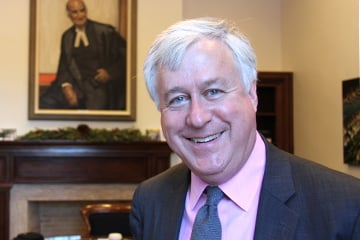

The Law Society of Upper Canada has released a guide that it hopes will clarify its statement of principles requirement.
The new obligation requires every lawyer and paralegal in Ontario to adopt and abide by a statement of principles “acknowledging their obligation to promote equality, diversity and inclusion” and has faced some backlash since the law society started implementing it in September.
Law society Treasurer Paul Schabas says some misleading information had come out of the discussion about the requirement.
“There are people who are calling it compelled speech [and] that it requires you to profess to beliefs that are somehow beyond our mandate as a regulator,” he says.
“And we wanted to clarify that this is about your conduct and professional responsibilities in your capacity as a lawyer or a paralegal.”
The guide says that the statement of principles “need not include any statement of thought, belief or opinion.”
LSUC benchers are now set to vote Dec. 1 on a motion that would provide an exemption from the requirement for conscientious objectors.
Bencher Joe Groia is putting forward the motion and has argued that the requirement is compelled speech.
Bencher Barbara Murchie had also proposed a motion that was seen as a compromise. That motion, however, was withdrawn after the guide was released.
“It’s intended to provide everyone in the profession and everyone who is taking an interest in this that this is about the law society’s broader objectives of combating systemic racism in the profession,” Schabas says of the guide.
“The statement is one piece of a much larger strategy, but it’s an important piece in hopefully accelerating change and accelerating a culture shift by causing all lawyers and paralegals to reflect periodically on the obligations that they have.”
In order to meet the requirement, lawyers have to write their own statement or adopt a template the law society will provide and mark on their annual report that they have done so. They will not be required to submit the statement to the law society.
The law society has said it will not penalize lawyers for non-compliance with the requirement this year, but it has not ruled out imposing a penalty in future years.
The requirement is also facing a court challenge launched by Lakehead University law professor Ryan Alford, who is requesting an interim injunction. Alford is also seeking a declaration that the requirement is unconstitutional and contrary to the rule of law.
Editor's Note: Nov 22, 2017, correction made to reflect that Barbara Murchie proposed a motion that was seen as a compromise, not Andrew Spurgeon.